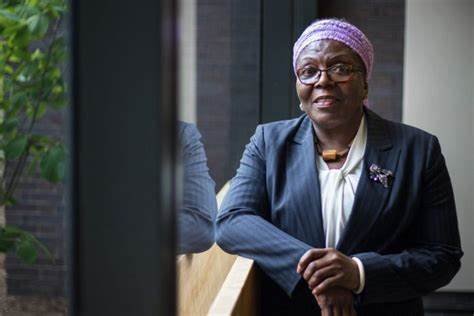Monrovia, June 14, 2024 – The Ministry of Information, Cultural Affairs, and Tourism (MICAT) has firmly dismissed circulating reports suggesting that former Chief Justice Gloria Musu-Scott, currently incarcerated, has been granted compassionate leave. These rumors, MICAT asserts, are unfounded and counterproductive.
Former Chief Justice Gloria Musu-Scott, once a respected figure in Liberia’s judiciary, has been embroiled in a tragic and highly publicized legal case. Musu-Scott, along with three family members, was sentenced to life imprisonment for the brutal murder of her niece, Chaloe Musu. The case has captivated public attention, casting a shadow over the former Chief Justice’s illustrious career.
Chaloe Musu was found dead under mysterious circumstances, leading to a thorough investigation. The evidence presented during the trial painted a grim picture, implicating Musu-Scott and her co-defendants in a premeditated and violent crime. The court proceedings revealed a complex web of family tensions and alleged financial disputes that culminated in the young woman’s untimely death.
The trial, which was followed closely by the media and public, ended with a life sentence for Musu-Scott and her family members, marking a dramatic fall from grace for the former Chief Justice. This case has stirred significant emotional and societal responses, reflecting the broader issues of justice and accountability in Liberia.
Recent rumors had suggested that Musu-Scott was granted compassionate leave, a provision typically reserved for inmates under specific humanitarian grounds, such as severe illness or family emergencies. However, these reports were swiftly addressed during a Ministry of Information press briefing on Thursday.
Deputy Information Minister for Technical Services, Daniel Sando, unequivocally stated that Musu-Scott remains incarcerated at the Monrovia Central Prison, continuing to serve her life sentence. “The information circulating about Gloria Musu-Scott being granted compassionate leave is entirely untrue. She remains behind bars, serving her sentence as mandated by the court,” Sando clarified.
He further emphasized the detrimental effects of such misinformation, stating, “Spreading false information about high-profile cases like this one is counterproductive and undermines the integrity of our judicial system. We urge the public and media to refrain from circulating unverified reports.”
The government’s swift response aims to maintain public trust in the legal system and ensure that justice is seen to be upheld without prejudice or favoritism. The dismissal of these rumors is also crucial in preventing further distress to the victim’s family and maintaining societal order.
Public reaction to the news has been mixed. Some citizens expressed relief at the government’s clarification, viewing it as a necessary step to uphold the rule of law. “It’s important that the justice system remains transparent and accountable. False reports can create unnecessary confusion and distrust,” said Emmanuel Johnson, a local Monrovia resident.
Others, however, continue to question the broader implications of the case. “This situation has highlighted deep issues within our society, and while clarity is appreciated, it’s also a reminder of the need for ongoing reforms in our legal and correctional systems,” commented Lydia Freeman, an advocate for judicial transparency.
The government’s firm stance against the rumors underscores its commitment to justice and the rule of law. As the former Chief Justice continues to serve her sentence, the case remains a poignant reminder of the complexities of legal and familial dynamics in Liberia.

